I am trying to download the pdf from this url :
http://www.africau.edu/images/default/sample.pdf
I followed the example and wrote the code below.
import { saveAs } from "file-saver";
const downloadPDF = ()=>{
var FileSaver = require("file-saver");
FileSaver.saveAs(
"http://www.africau.edu/images/default/sample.pdf",
"somehthing.pdf"
);
}
However, when the downloadPDF function is invoked on the button pressed. The file is not being saved. The pdf is simply being opened in the new tab.
The screenshot of what the pdf looks like in the new tab is shown below.

How do I save the pdf file?
Also, is this approach to get the pdf even valid in the first place or is axios.get() more preferred approach to get the file, then save the response file (response.body) via FileSaver.saveAs()
If the question is unclear, please let me know in the comment before flagging - I will make the necessary update. Thank you